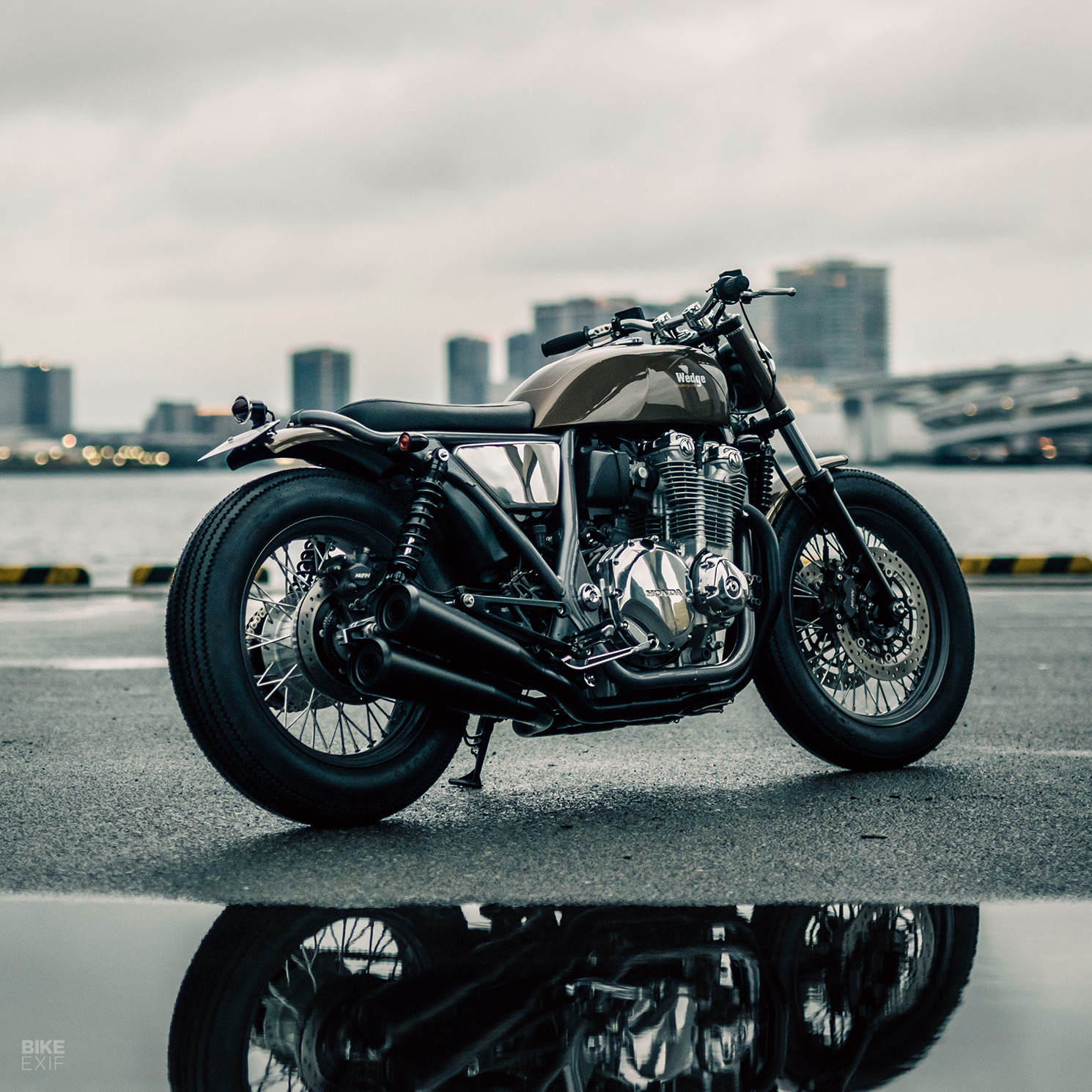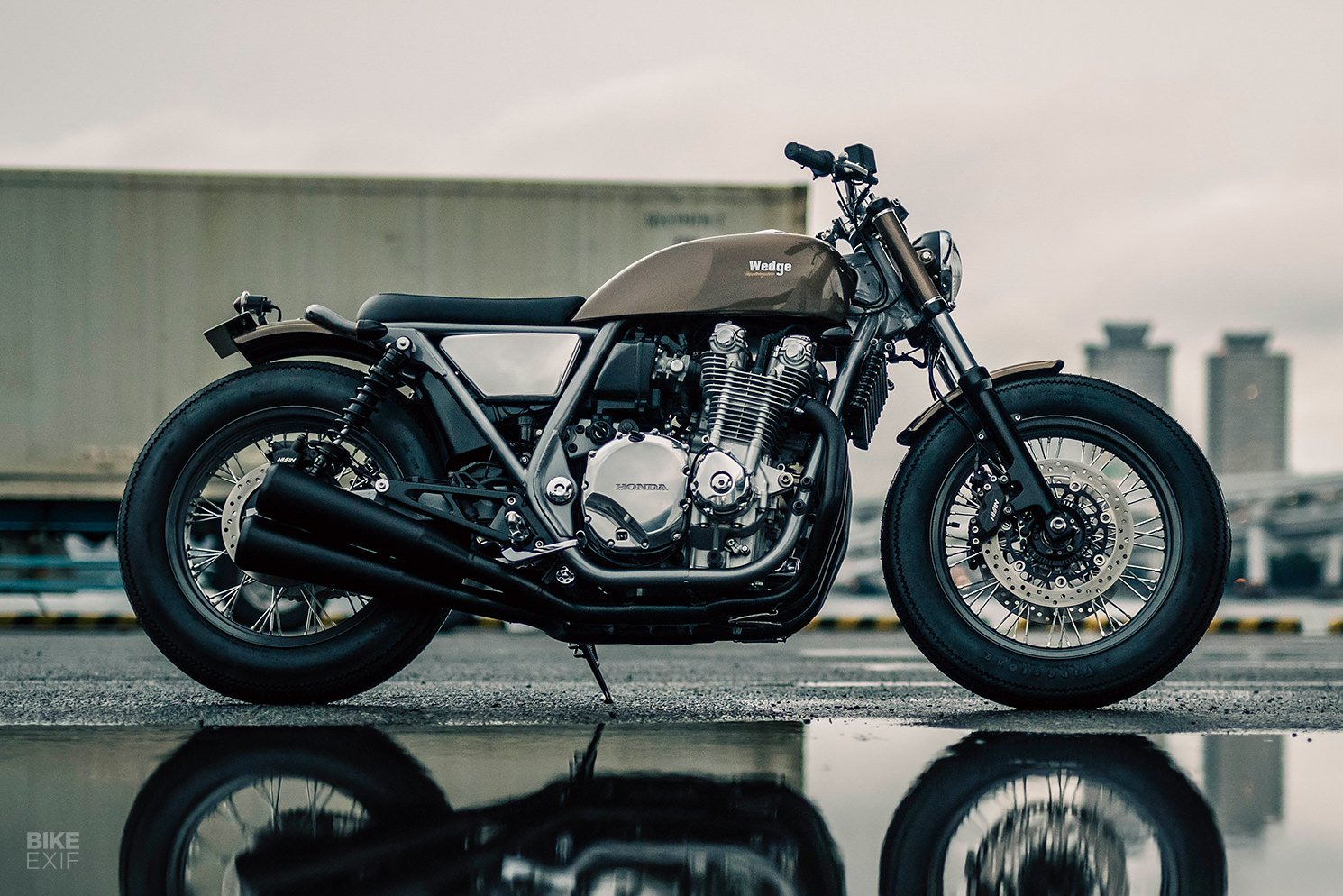
If there’s one word that describes Takashi Nihira’s style, it’s restraint. His custom bike builds are tidy and unassuming, but they reward closer inspection with myriad tasteful details. So it’s little wonder that Nihira-san’s Tokyo-based custom shop, Wedge Motorcycle, has won multiple awards.
His latest build epitomizes this ethos. Finished in desaturated tones, it’s compact and perfectly proportioned, despite the heft of its four-cylinder engine. It’s classic vibe also belies it’s true nature; under the custom work lies a 2016-model Honda CB1100 EX.
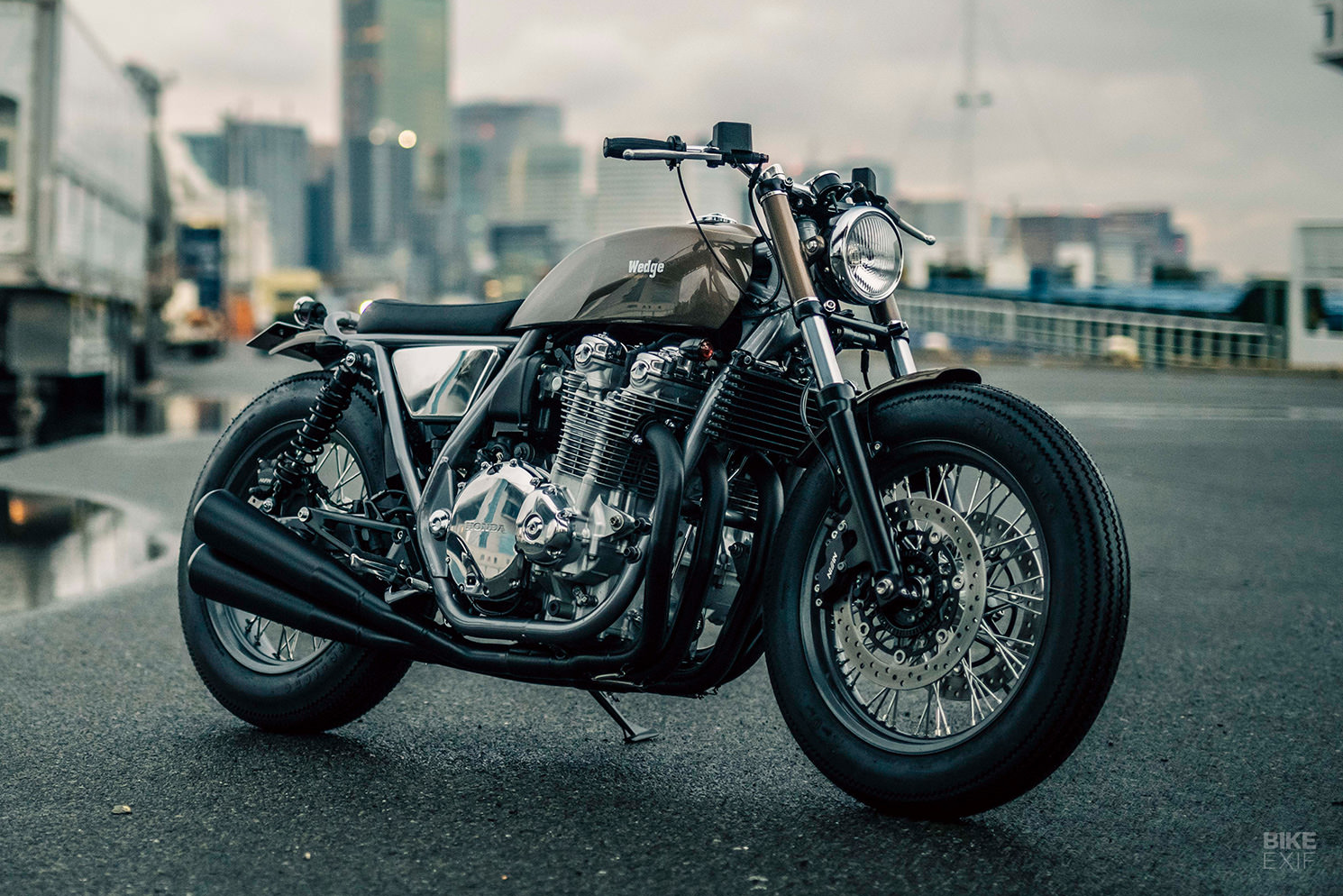
The choice of a modern donor bike was a very deliberate one. Wedge’s customer wanted a motorcycle with tons of vintage style, but also planned to use it as a daily runner—so reliability was high on the list. “He wanted a custom bike that he could ride for the rest of his life,” says Takashi.
“In the used bike market, older air-cooled inline-four engines are very very popular, and so, expensive. Also, because they have been on the market for a long time, the condition of used bikes vary widely, and there is a high probability that they will have problems after starting out on the road.”
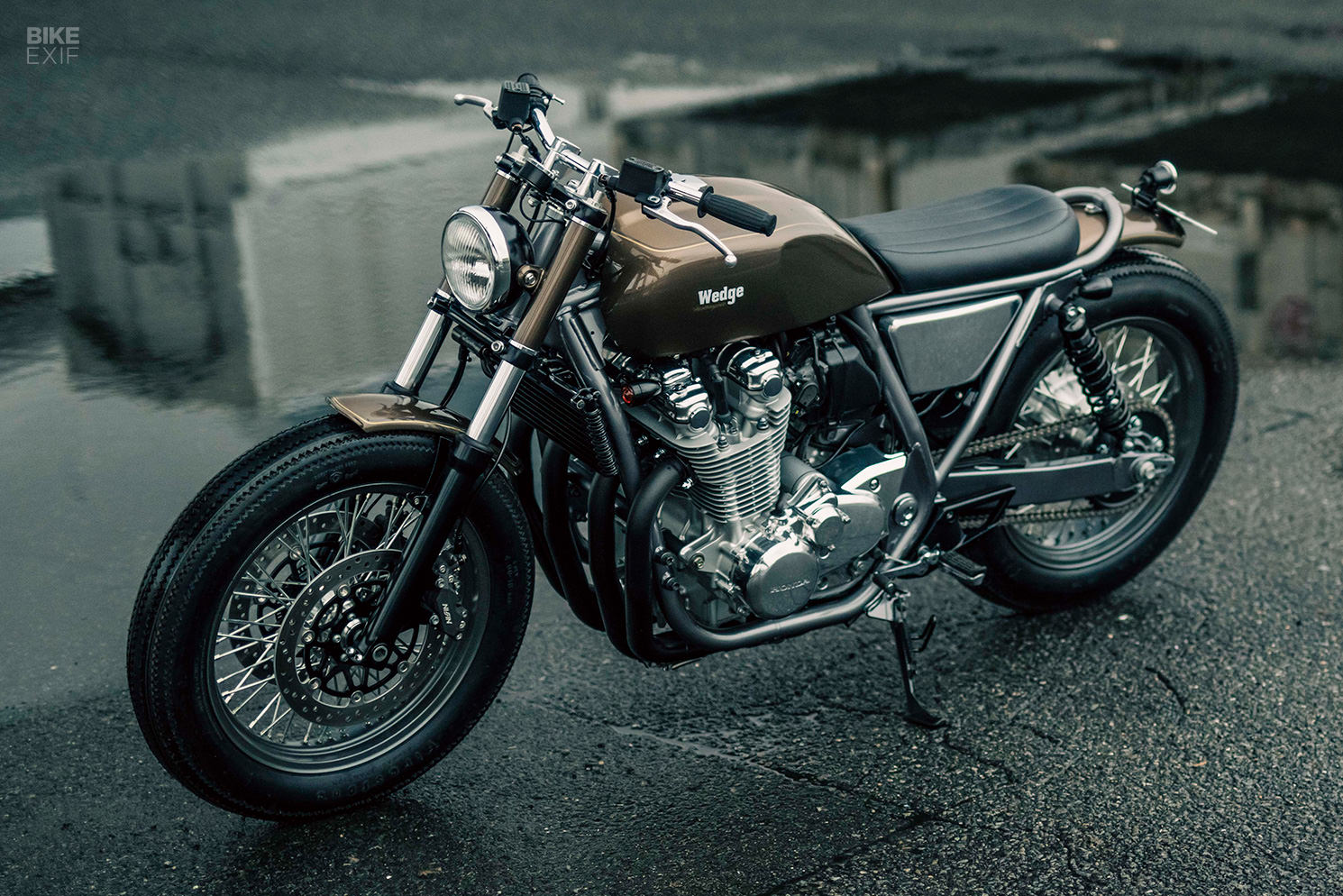
A newer Honda CB1100 is far less likely to break down—but customizing one is not without its challenges. Takashi had to find his way around the Honda’s 1,140 cc inline-four engine, the sturdy frame that holds it, and its modern electronics. Still, it doesn’t look like any of that slowed him down much.
For extra peace of mind, Takashi split the engine open and put it back together with new gaskets. The covers were polished to a brilliant sheen, but that’s as far as the mods go—the fuel injection module and emissions sensor are all still stock. That means that the CB1100 runs great without the need for any additional tuning, and it’ll pass the vehicle inspection that’s required every two years in Japan.
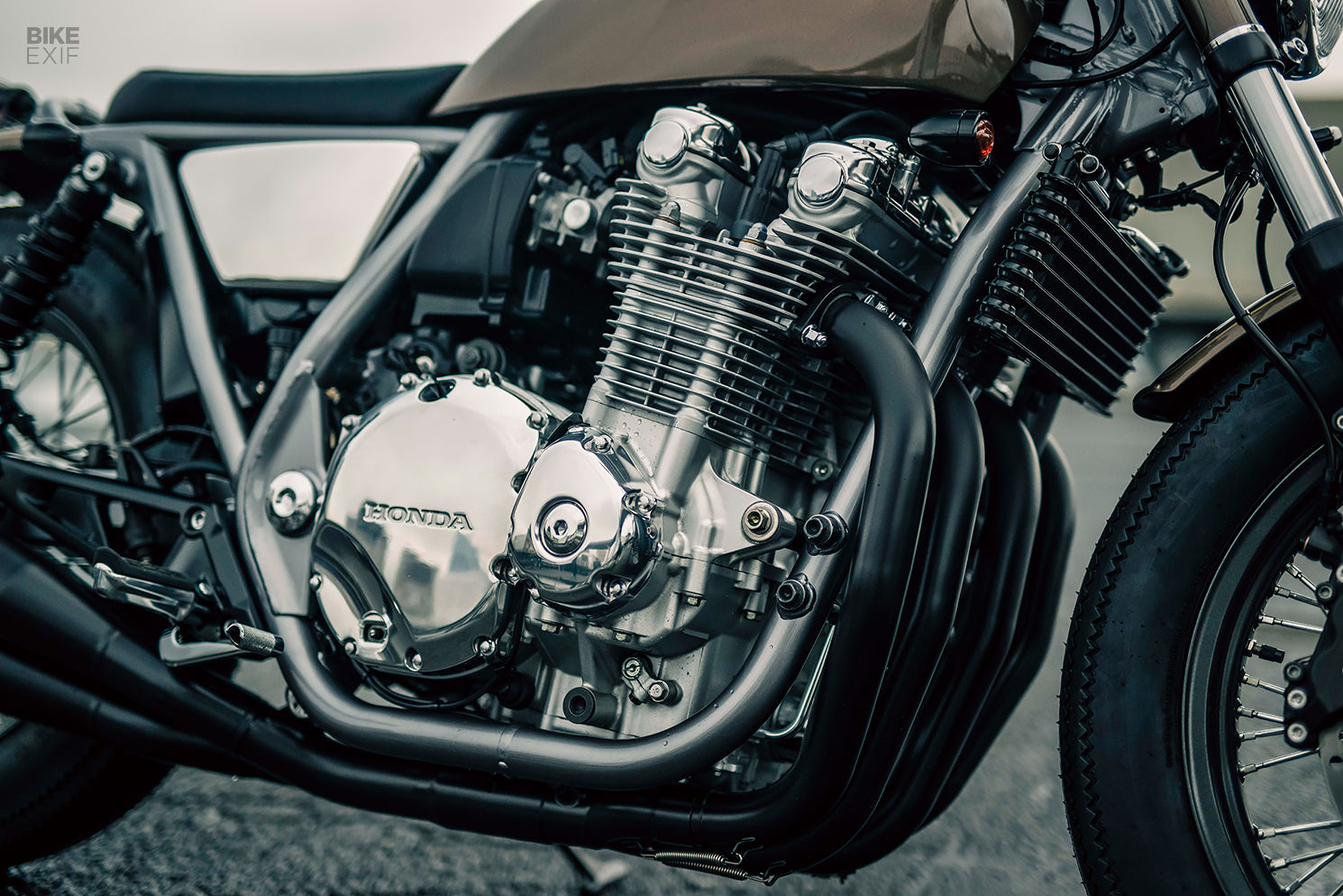
Takashi also kept the original airbox, but slimmed it down enough to suit the bike’s redesign, but not so much that it would affect performance. The four-into-two headers and mufflers come from Moriwaki, but they’ve been modified and coated black. And the bike was rewired too—but only so that there’d be fewer wires and components sticking out everywhere.
The wheels and brakes are also OEM parts, but the brake master cylinders are Brembo items. Firestone’s vintage-style Deluxe Champion treads were spooned onto the 18” wheels at the client’s request. The chunky rear tire caused a clearance issue though, so the swingarm had to be altered to make room.
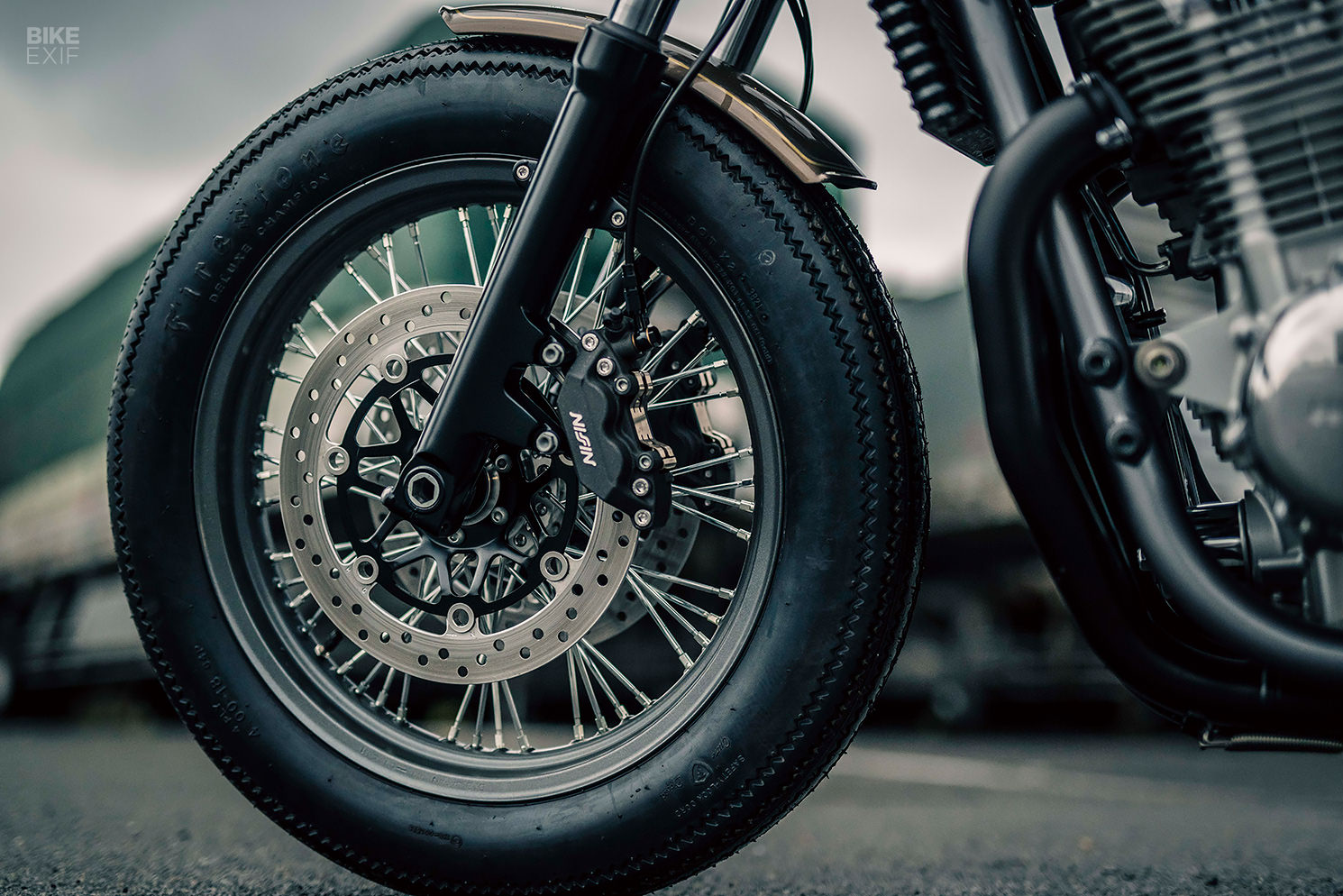
Next, Takashi shortened the front forks and fitted a pair of Öhlins shocks at the back. That not only slammed and balanced the Honda’s stance, but also brought the seat height down for Wedge’s client, who’s a little on the short side. But it took a lot more than just those changes to create the flawless silhouette you see here.
“I believe that the Wedge’s unique style is a straight body line,” Takashi explains. “In order to create such a simple and beautiful line requires more than just a straight bottom line created by the fuel tank and seat. It includes the height of the headlight, how close or far it is from the body, the line leading from the headlight to the top of the fuel tank, the size and the positioning of the bodywork in relation to the wheels, and many other elements.”
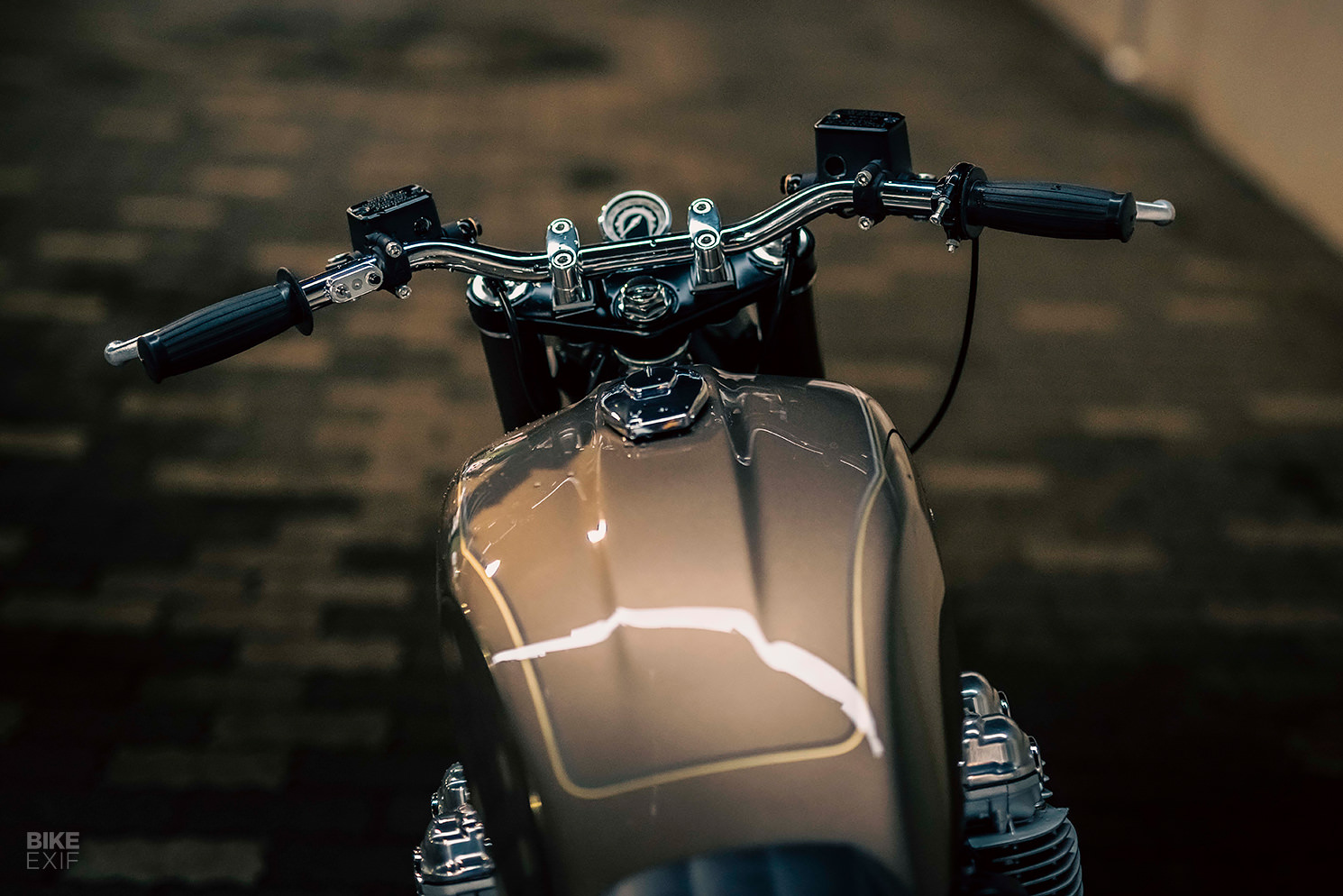
Takashi started by fabricating a new fuel tank, using pieces of the old one. Starting with the top section of the OEM unit, he built a new unit that’s narrower and sits lower than before, but still retains some of its original DNA. There’s even space for the stock fuel pump.
“I slimmed the rear end of the fuel tank to the width of the seat rail which I made,” he adds. “This allowed the in-line four-cylinder engine to be emphasized. When a rider sits on the bike, the engine can be seen protruding from both sides of the fuel tank—I think this powerful rider’s view is one of the best features of this vehicle.”
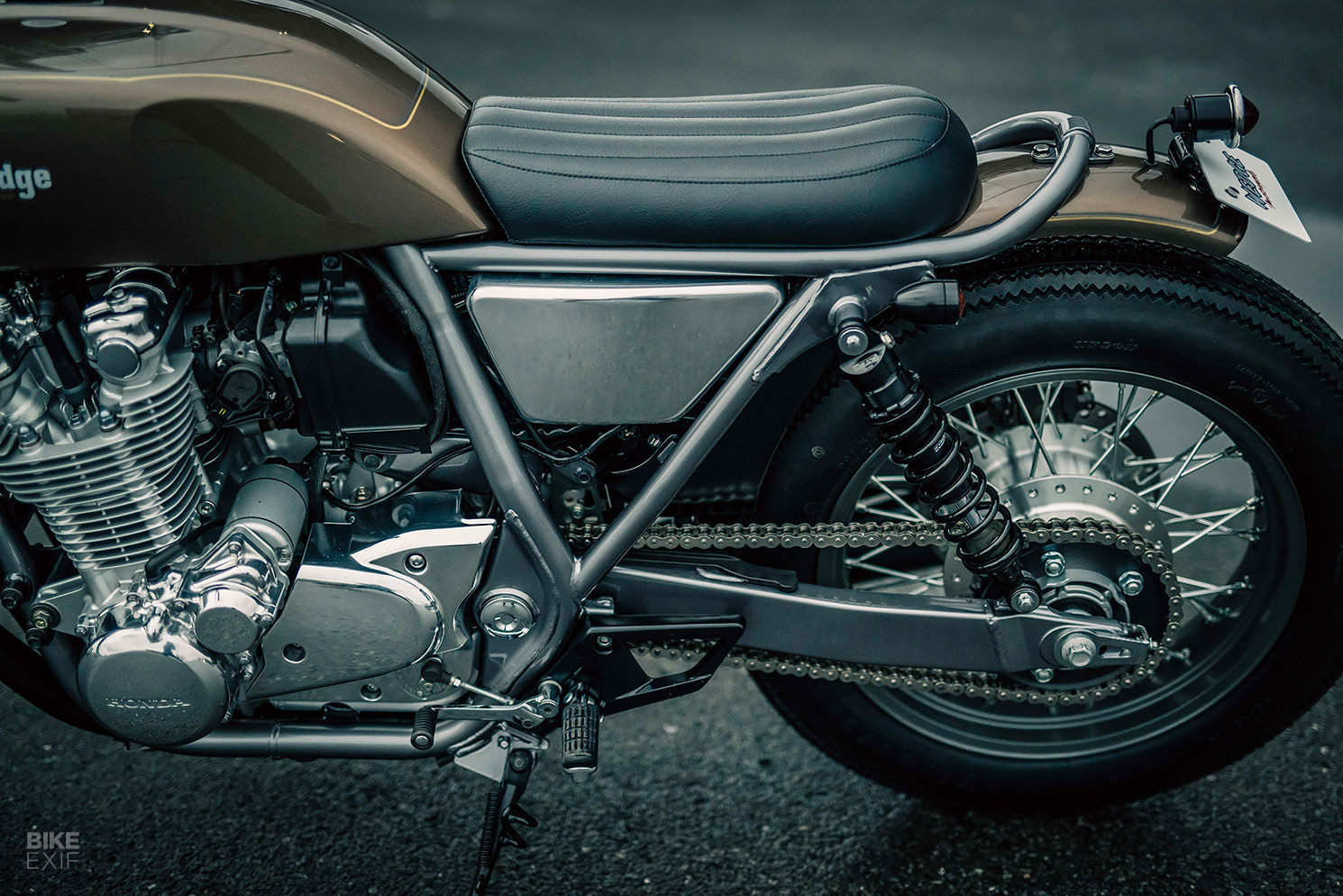
The slim custom seat has a slight dip and taper to it too, so that it flows out of the tank harmoniously. Handmade fenders and aluminum side covers round out the new bodywork. “I took the bike off the workbench and took it outside to verify the body lines many times, from different viewing angles and at different distances,” says Takashi.
Sitting up front is a classic round headlight, held by the same type of wraparound headlight stays that the older CB750 Four uses; an idea that came from the bike’s owner. Sitting behind it are a Motogadget speedo, and new bars fitted with vintage-style grips and switches.
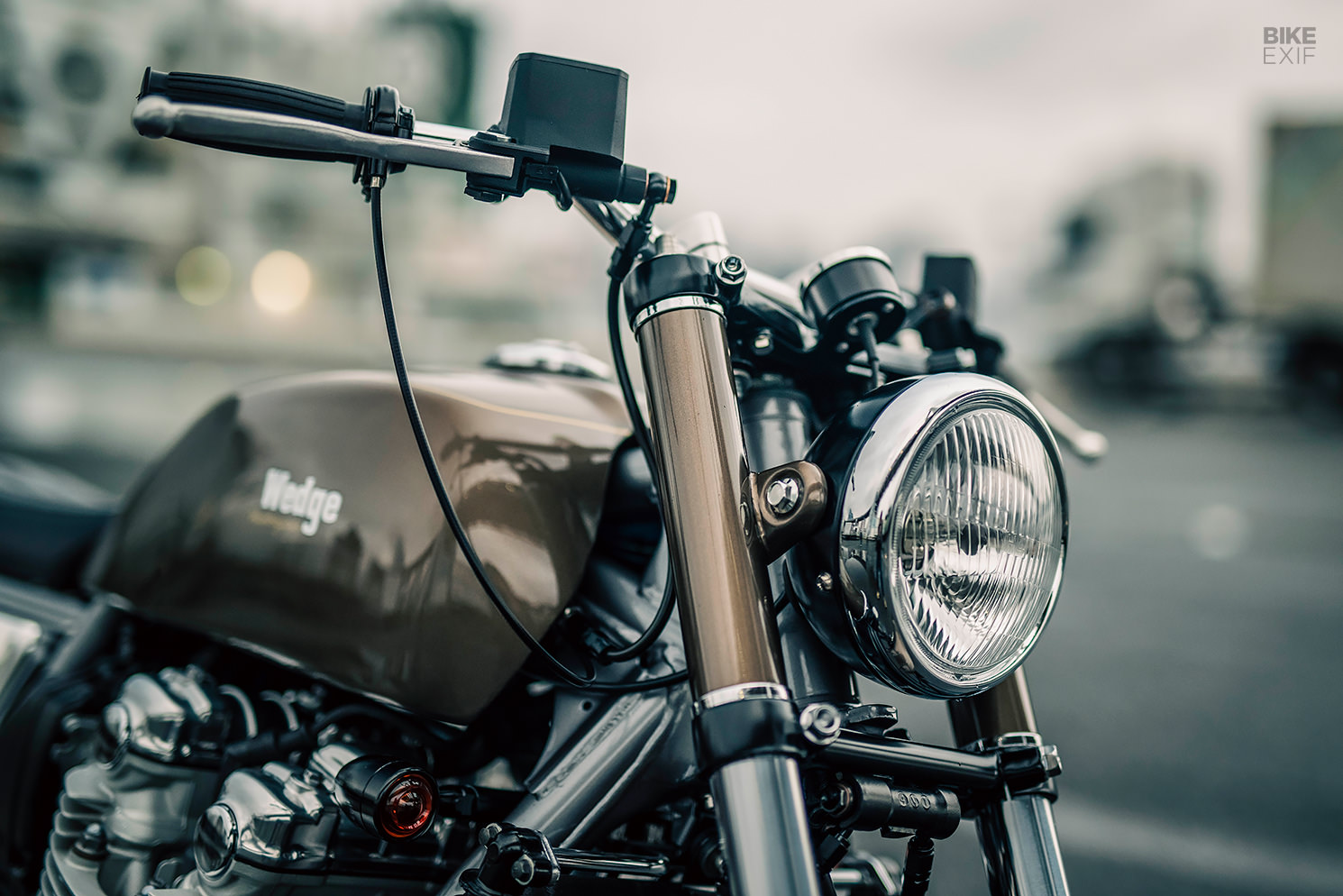
There’s a lot of work that most people would never pick up on—just take a look at the yokes. Takashi liberated them of any unnecessary stays and mounts, smoothed them off, and relocated the front brake line junction to below the lower yoke.
Wedge’s good taste extends to the paint job, too. The tank, fenders and headlight stays wear a simple, but effective, root beer color, while the frame’s been redone in silver. It’s as attractive as it is timeless.
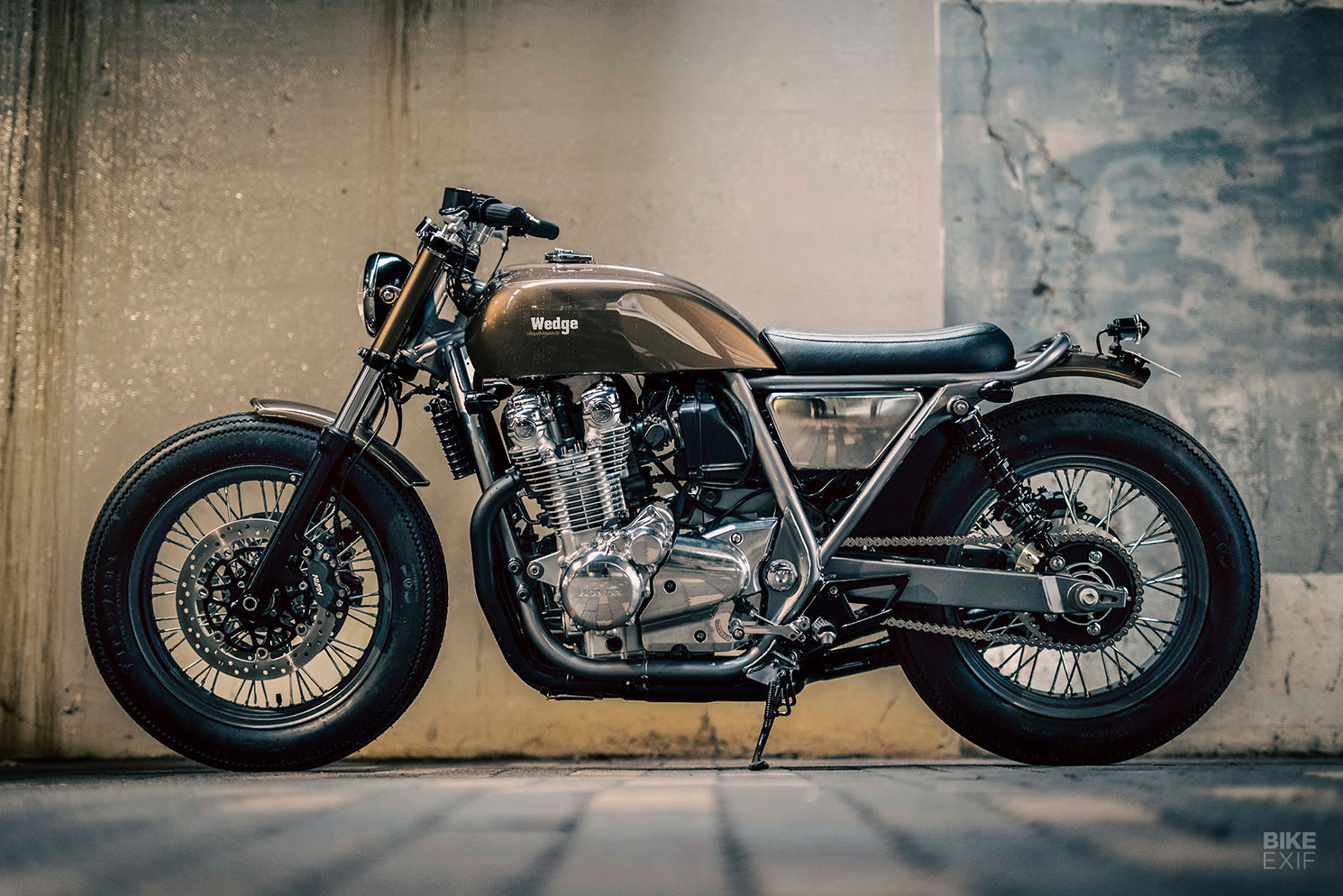
Takashi adds that the CB1100’s more compact dimensions and lower weight have had a significant impact on how it handles—in a good way. He adds that the bike has turned out just as he envisioned it.
Is his client happy though? He is, and he’s already started racking up miles on his new whip.
Wedge Motorcycle | Facebook | Instagram | Images by Hiromitsu Yasui | With thanks to Tadashi Kono
